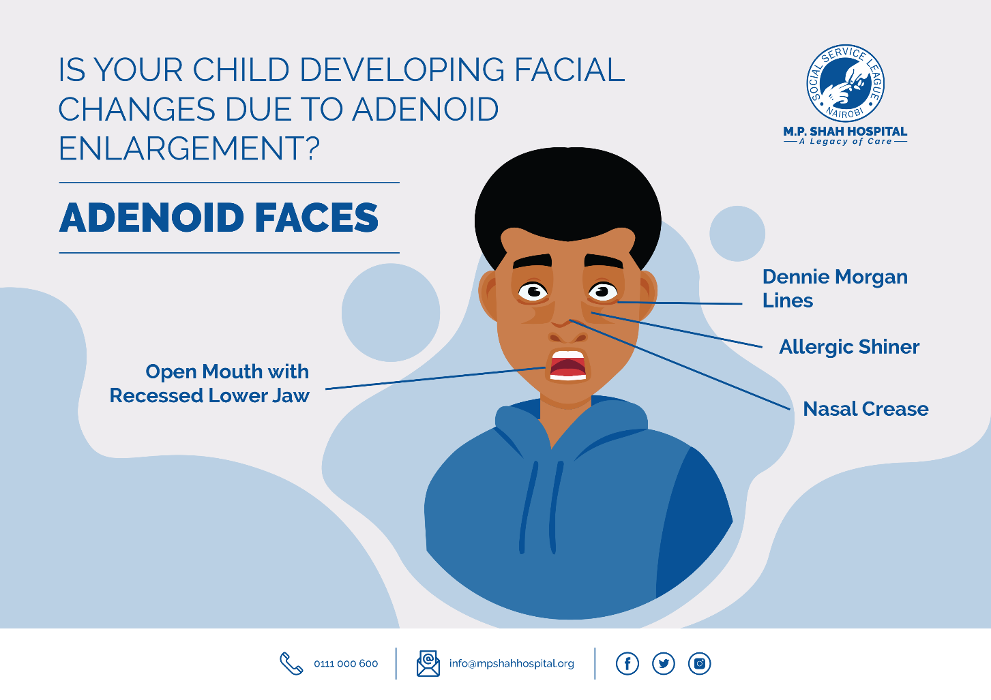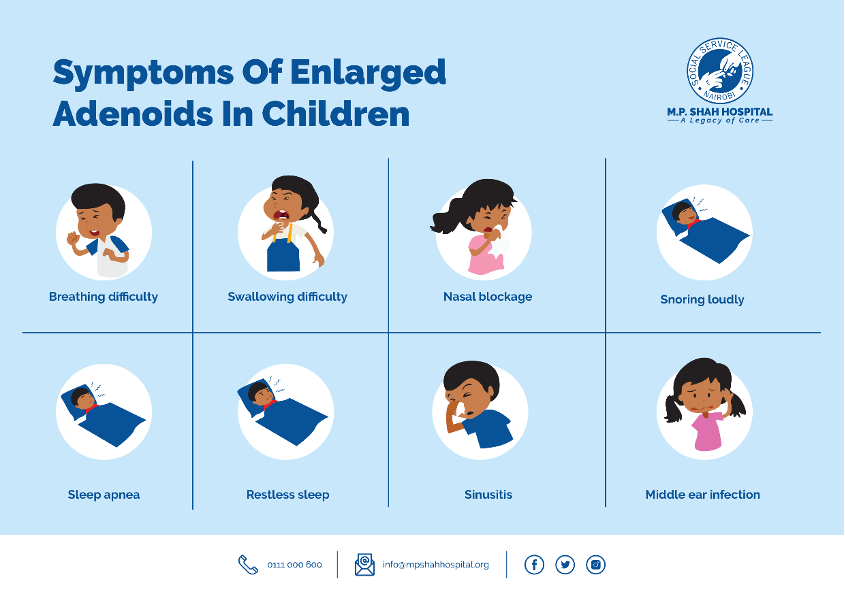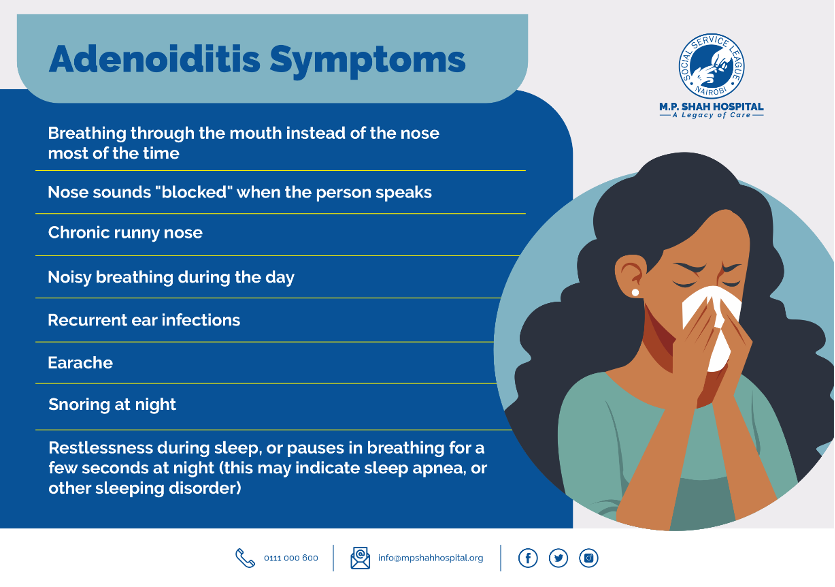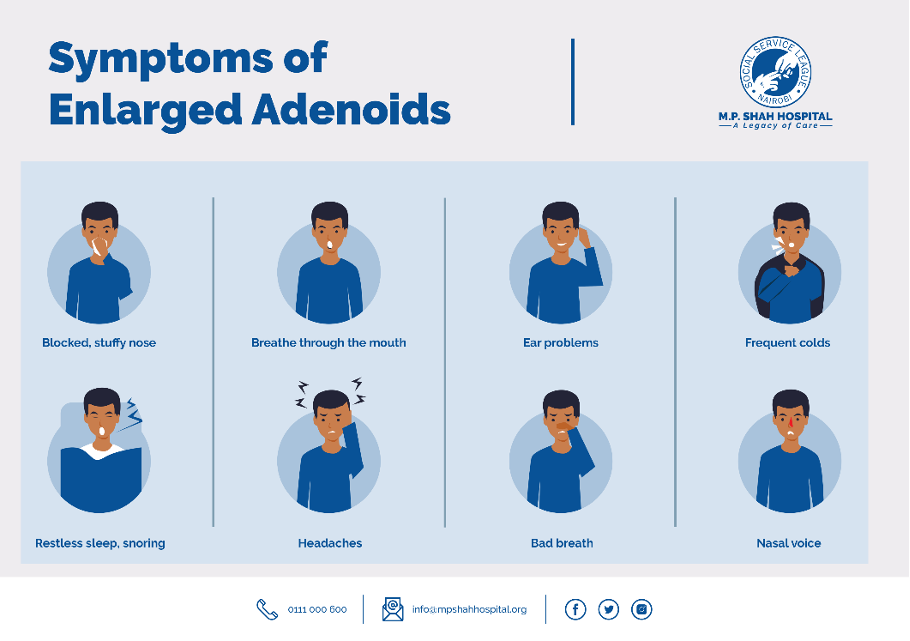
Adenoids are mass of lymphoid tissues behind nose that helps in developing our immunity. Mostly they do not cause any symptoms.
In certain children they may present with obstructive symptoms like nasal congestion, nasal blockage, snoring, mouth breathing, sleep disturbances, persistent cold and flu.

In a smaller group of children, they may become chronically infected, causing issues with their ears such as earaches, recurrent ear infections, and persistent fluid in the ear, which may lead to problems with hearing and speech development.

Certain children also do have chronically infected adenoids that causes a persistently discharging nose with mucous and resistant cough that does not respond well to medication. Adenoids also may exaggerate allergic symptoms in children with airborne allergies or Bronchial asthma. Not only this but persistent adenoid pathology can lead to dental issues and issues with facial growth.

Any of these symptoms should be investigated with a thorough clinical examination of Ear, Nose and Throat by ENT doctor and Radiography of the nose or Endoscopic examination, if required. Medical management is helpful in many children but a certain group might not respond very well or has severe symptoms due to adenoid pathology. Adenoid surgery helps these children.

Adenoid surgery, also known as an adenoidectomy, is a procedure that removes adenoids through the mouth. It’s usually performed on children between the ages of 1 and 7, as adenoids naturally shrink after age 7 and are almost gone by the teenage years. The surgery is often done as a day case, but some surgeons may prefer to keep children in the hospital for one night.

Conventional curette method is less expensive but carries a higher risk of incomplete removal or residual adenoid tissue. In comparison endoscopic adenoidectomy is able to remove the adenoids completely avoiding recurrence of adenoids but is relatively more expensive.











